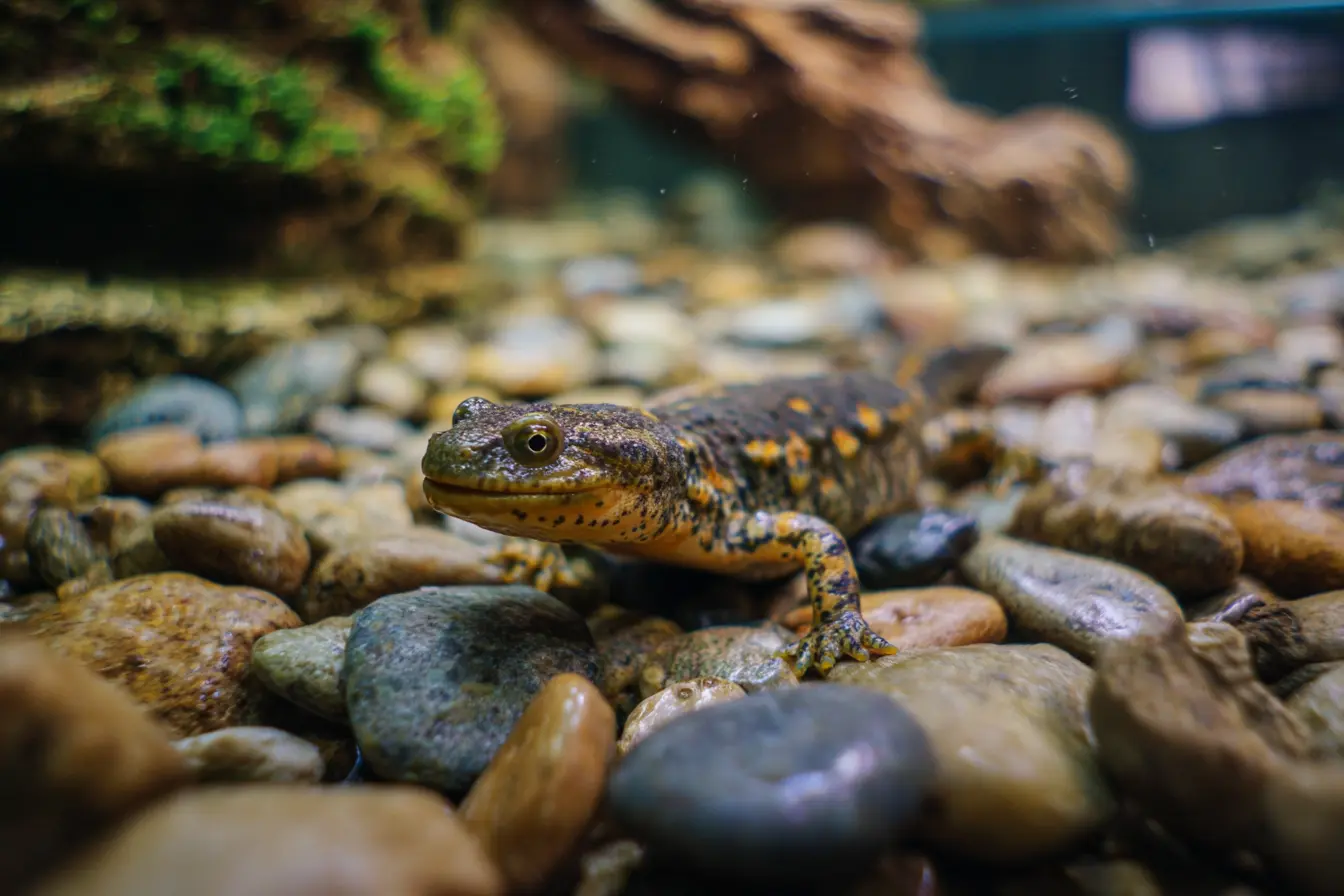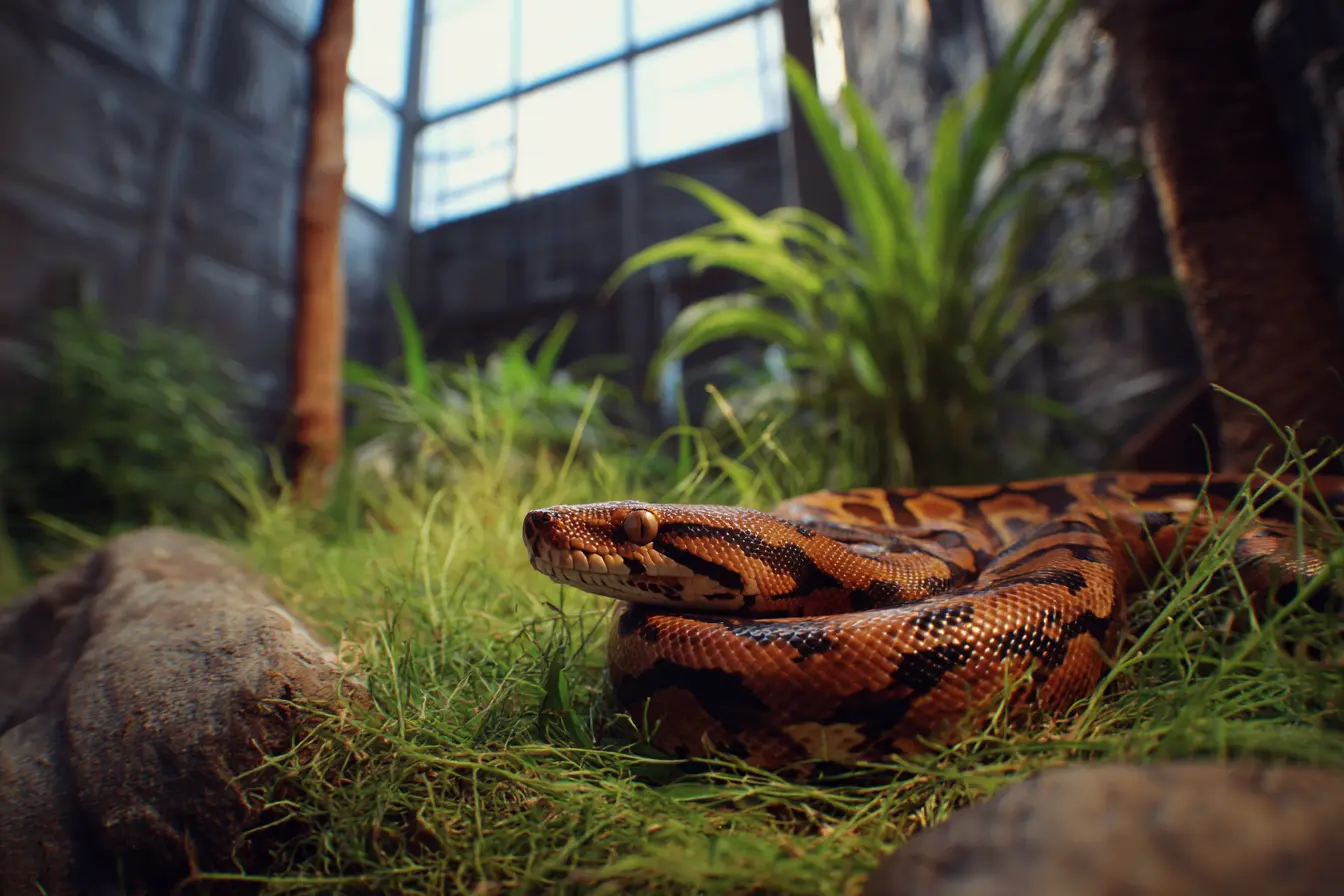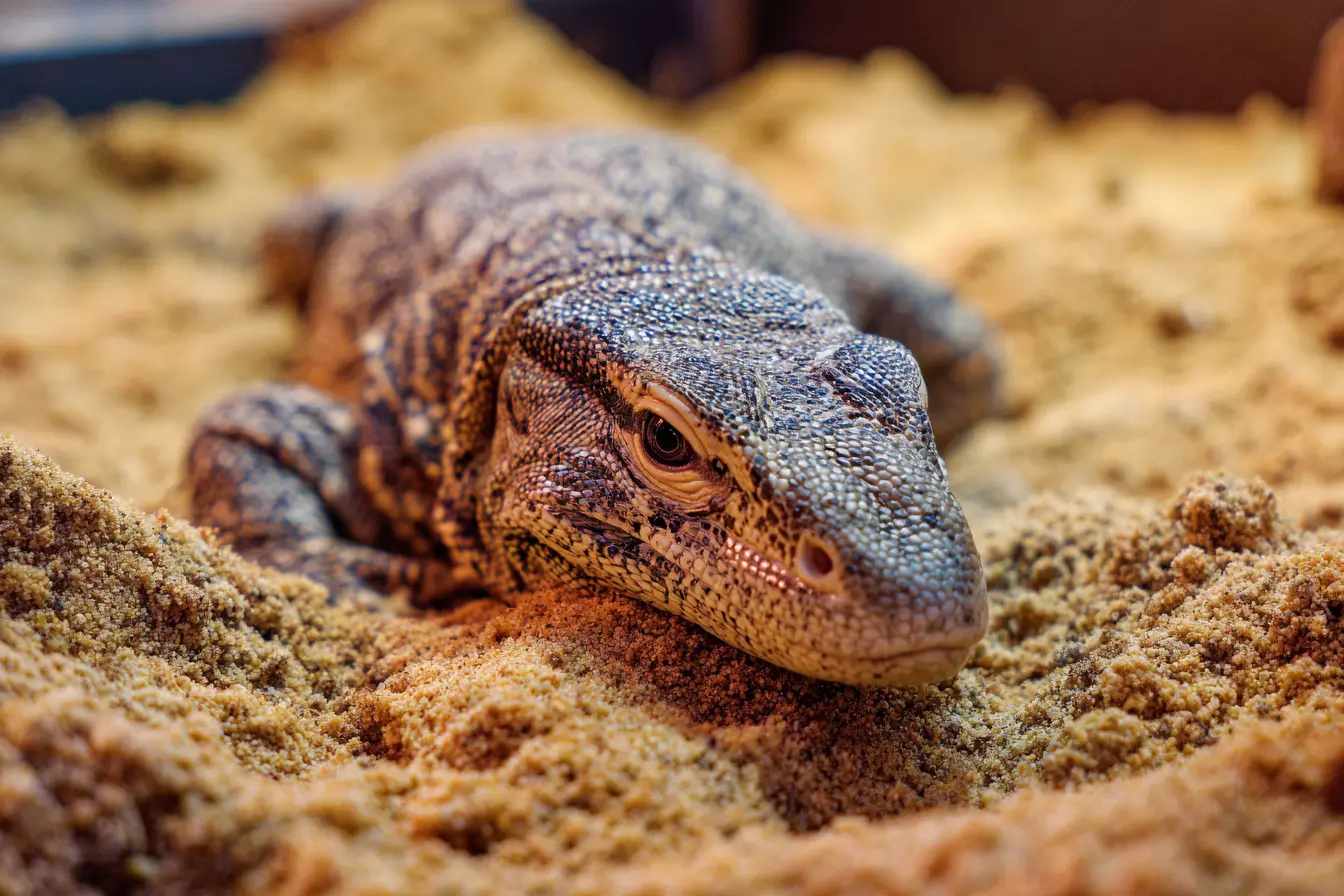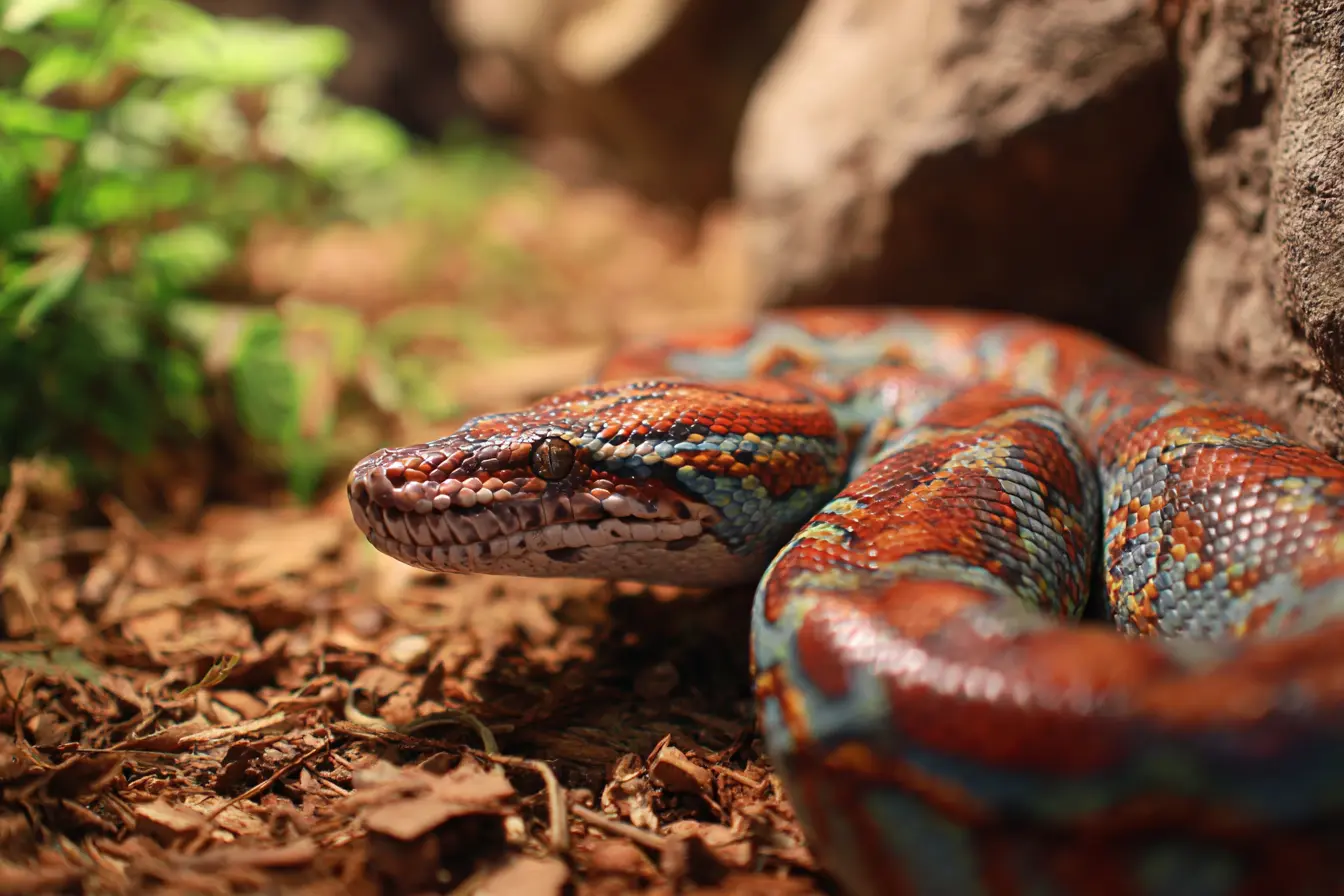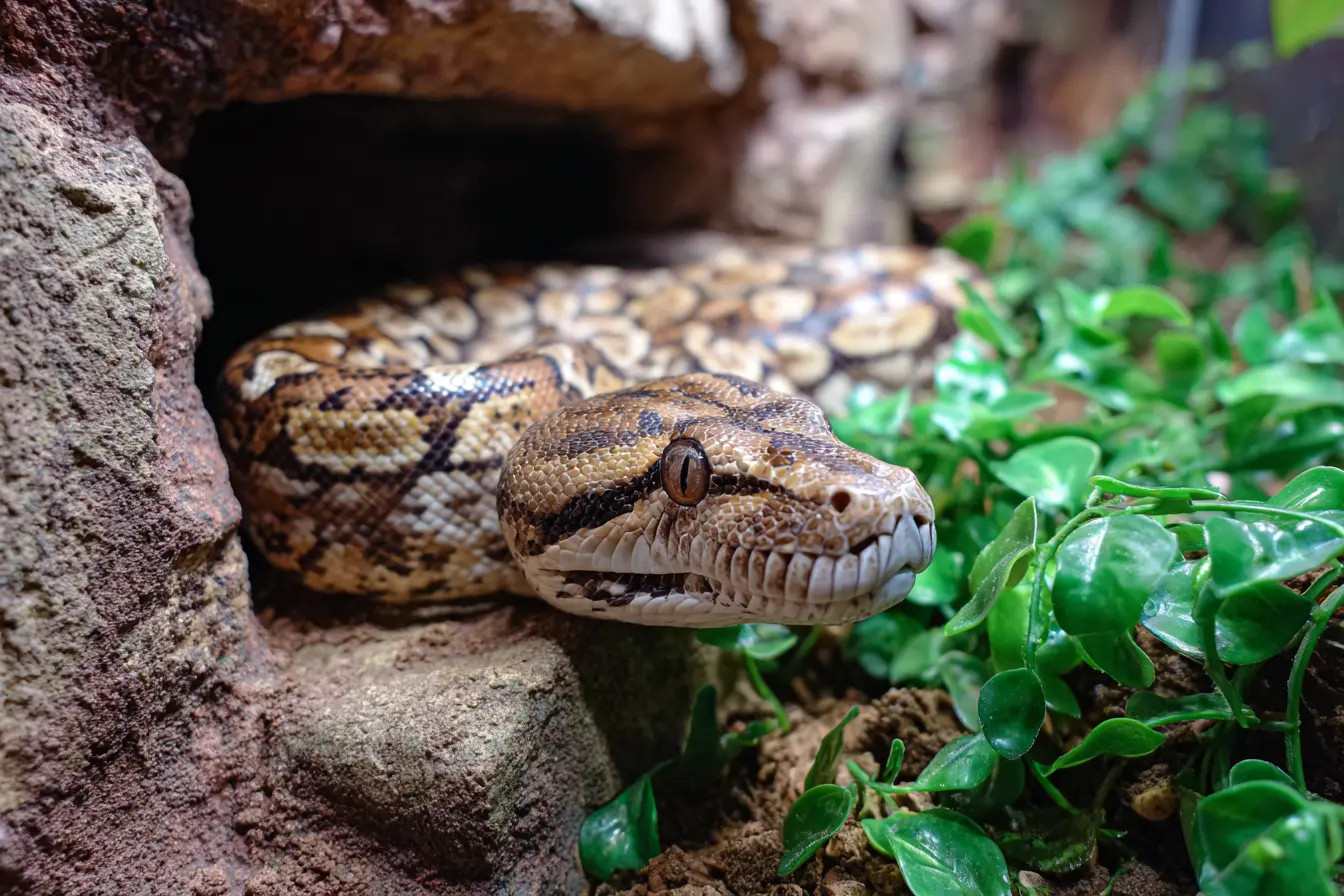
Considering a Bolivian Short‑Tailed Boa? What You Need to Know Before Bringing One Home
If you're drawn to boas but hesitant about managing a large, fast-growing snake, the Bolivian short‑tailed boa may be the perfect choice. These boas are admired for their manageable size, stocky build, and often calm disposition. Native to South America and relatively uncommon in the pet trade, they appeal to both intermediate and experienced keepers looking for a unique and rewarding reptile companion. Here's everything you need to know before bringing one home in the UK.
Introduction to Bolivian Short‑Tailed Boas
Bolivian short‑tailed boas (Boa constrictor amarali) are a subspecies of the common boa constrictor, native to high-altitude regions of Bolivia. They are easily recognisable by their thick bodies, short tails, and attractive colouration — often a muted grey, tan, or silver tone with dark saddle patterns.
Unlike their larger relatives, these boas usually remain between 1.2 and 1.8 metres (4 to 6 feet) in length, making them a more compact alternative to the standard boa. Their slow metabolism and placid temperament make them relatively easy to care for, though they still require a solid understanding of reptile husbandry.
Legal Requirements in the UK
No Licence Required
The Bolivian short‑tailed boa is not classified under the Dangerous Wild Animals Act 1976. This means you can legally keep one in the UK without obtaining a special licence. Nonetheless, you should always ensure your setup meets animal welfare standards and that your snake is sourced responsibly.
Responsible Sourcing
Always purchase your boa from a reputable breeder with a proven track record of producing healthy, captive-bred animals. Wild-caught individuals may carry parasites, exhibit more defensive behaviour, and suffer from stress-related issues. Captive breeding also helps reduce pressure on wild populations.
Setting Up the Ideal Habitat
Enclosure
- Size: A vivarium measuring at least 120 x 60 x 60 cm (4 x 2 x 2 ft) is suitable for most adults, though larger is always beneficial for exercise and enrichment.
- Substrate: Use aspen, cypress mulch, or coconut husk to maintain humidity and allow for natural burrowing behaviours.
- Enrichment: Provide hides on both ends of the thermal gradient, sturdy branches, and décor to mimic a semi-arid or forested environment.
Temperature and Humidity
- Thermal Gradient: Maintain a warm side of around 30°C (86°F) and a cool end at about 24°C (75°F).
- Night Time Drop: It's acceptable for temperatures to drop a few degrees at night.
- Humidity: Keep humidity between 50–70%. Mist lightly when shedding, and ensure ventilation is sufficient to prevent respiratory issues.
Diet and Nutrition
Like all boas, Bolivian short‑tailed boas are carnivores and feed on appropriately sized rodents.
- Feeding Schedule: Juveniles should be fed once every 7–10 days; adults can be fed every 10–14 days.
- Prey Size: Food should be no larger than the widest part of the snake’s body.
- Feeding Tip: Offer frozen-thawed or pre-killed prey with tongs to promote safety and reduce stress.
These boas have slower metabolisms, so avoid overfeeding, which can lead to obesity and related health problems.
Health Considerations
Bolivian short‑tailed boas are generally hardy, but good husbandry is key to keeping them healthy. Watch for:
- Respiratory infections caused by incorrect humidity or low temperatures
- Mouth rot (stomatitis) from dirty enclosures or injuries
- Retained sheds, especially if humidity is too low
- Obesity, due to overfeeding and lack of exercise
Regular checks and prompt veterinary care from a reptile-savvy professional will help prevent serious issues.
Handling and Behaviour
Bolivian short‑tailed boas are often calm and tolerate handling well, especially when captive-bred and socialised from a young age.
- Handling Approach: Start with short, gentle sessions and increase duration over time. Support the body fully and avoid sudden movements.
- Temperament: While individuals vary, most are inquisitive and slow-moving, making them less prone to stress during interaction.
They’re not overly active, but their docile nature makes them ideal for keepers looking for a boa that is more manageable in both size and personality.
Conclusion
The Bolivian short‑tailed boa is a beautiful, tractable, and manageable constrictor that offers all the appeal of a large boa without the daunting size. With proper care, a responsible setup, and a commitment to good husbandry, these boas can make exceptional pets for those ready to meet their needs. If you're after a boa that's striking yet sensible, the Bolivian short‑tailed boa may just be your perfect match.
Vets near you
Speciality vets
- Aquatics vet specialists
- Birds vet specialists
- Camelids vet specialists
- Cats vet specialists
- Cattle vet specialists
- Deer vet specialists
- Dogs vet specialists
- Equines vet specialists
- Exotic vet specialists
- Goats vet specialists
- Pigs vet specialists
- Poultry vet specialists
- Sheep vet specialists
- Small Mammals vet specialists
- Wild vet specialists
Vet facilities
- Accessible by public transport
- Blood testing
- Car park nearby
- Client car park
- Dentistry
- Diagnostic imaging
- Disabled public access
- Flea and worm treatments
- Microchipping
- Mobile services
- Neutering
- Open at weekends
- Out-of-hours service
- Referral interests
- Referrals only
- Street parking outside
- Toilets available
- Vaccinations
